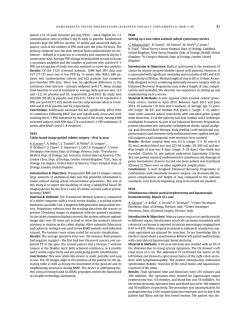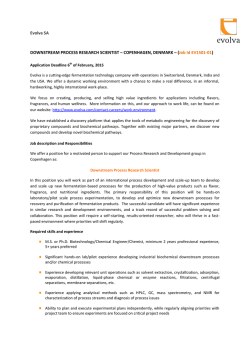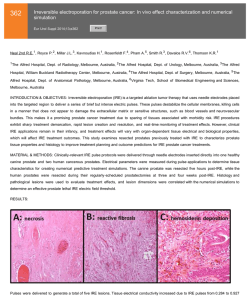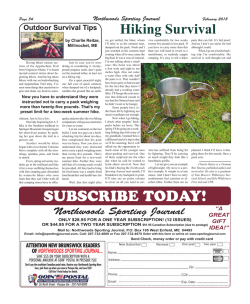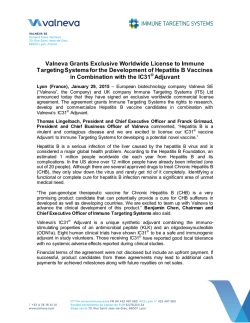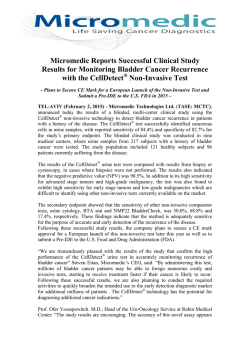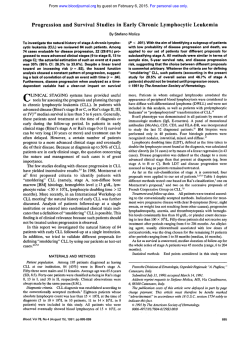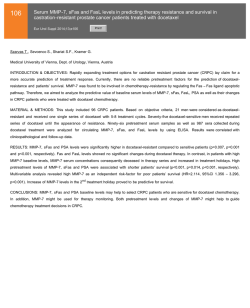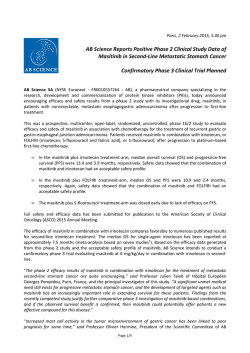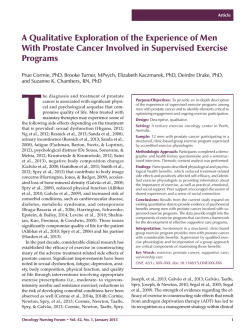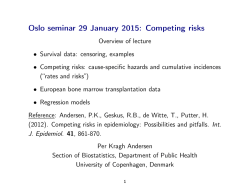
1-s2.0-S1569905614500061-main
B10: Randomized prospective study of adjuvant hormonal therapy for high risk prostate cancer after radical prostatectomy Patasius A., Kinčius M., Matjošaitis A.J., Trumbeckas D., Milonas D., Jievaltas M. Lithuanian University of Health Sciences, Dept. of Urology, Kaunas, Lithuania INTRODUCTION & OBJECTIVES: Nearly 30% of newly diagnosed prostate cancers have a high risk for disease progression and combined treatment in such cases are required in almost 60% of patients. The aim of our study was to evaluate early adjuvant hormonal therapy in high risk prostate cancer after radical prostatectomy and its influence on disease progression and survival. MATERIAL & METHODS: Between 2005 and 2009 patients who underwent radical prostatectomy were included to this prospective study. Inclusion criteria were: preoperative PSA >20ng/ml., first postoperative PSA >0.2ng/ml, seminal vesical invasion, postoperative Gleason score >8. Exclusion criteria were neoadjuvant hormonal therapy, positive lymphnodes and positive surgical margins. Subjects were randomized to two groups: treatment group N=13 (early adjuvant hormonal therapy for 6 months period) or controls N=15 (salvage hormonal therapy in case of biochemical recurrence). Kaplan Meier analysis was used to calculate overall and biochemical recurrence free survival. A level of statistical significance was chosen to be p<0.05 RESULTS: The mean patients age at operation was 64,5±6.5 (range 47-75). The mean follow up in both groups was 5.16 years (range 2.5-7). Biochemical disease relapse found in 38,4% (5 cases) for treatment group and 60% (9 cases) for controls. Biochemical recurrence free survival meadian was 1,44year ±31day. years for treatment group and 179±70 days for controls. There were 6 letal cases in study, 3 cases (20%) in treatment group and 3 cases (23%) for controls. No disease progression (distant metastases) were found for treatment group, and 3 cases (23%) for controls, distant metastases were found. Disease progression free days median was 276±days (There were no significant difference between groups, on biochemical recurrence free survival (p=0.223) and overall survival (p= 0.577). CONCLUSIONS: Early adjuvant hormonal therapy for high risk prostate cancer cases after radical prostatectomy was not effective Eur Urol Suppl 2014; 13(2): e1152 e1152
© Copyright 2026
